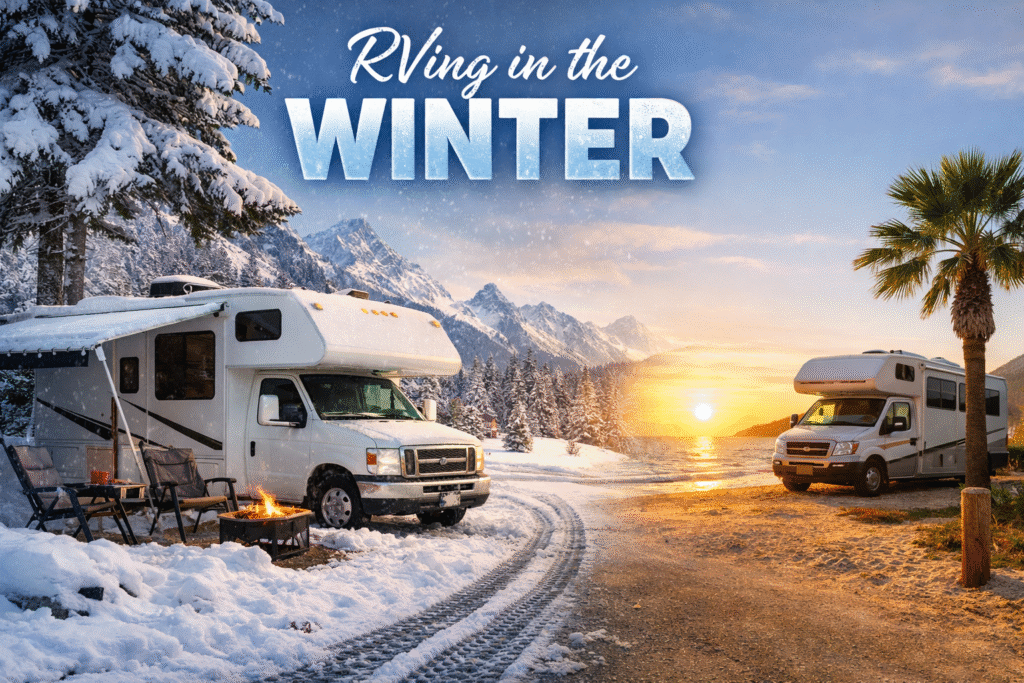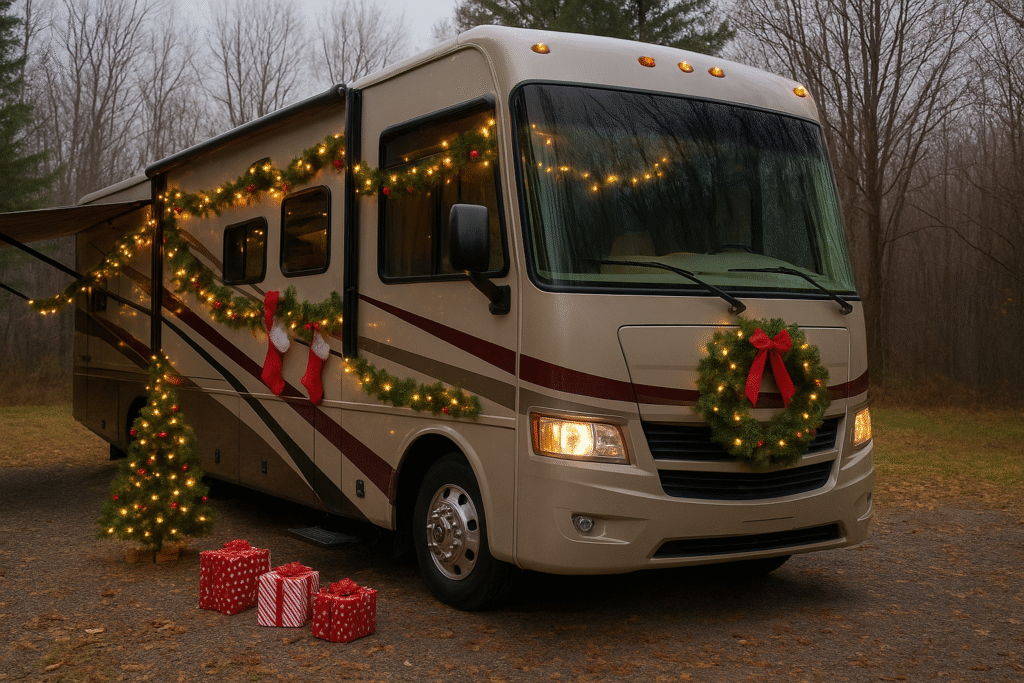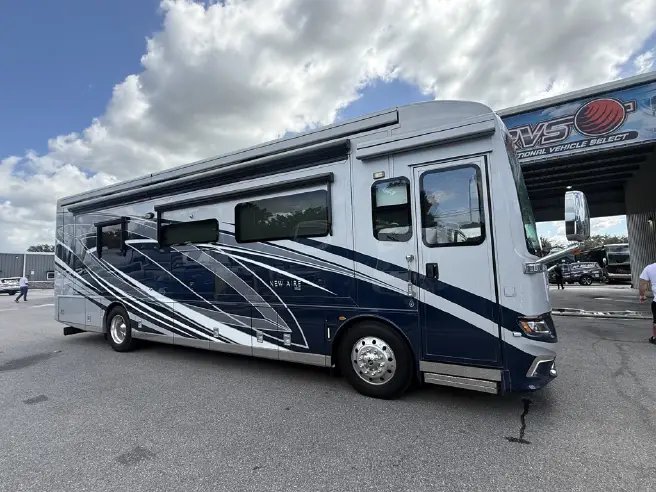More and more people are buying RVs and looking to shift to full-time RV living, especially in a year that’s resulted in people working from and teaching their children at home more than ever before. The thought of living the RV lifestyle and being able to travel wherever and whenever while remaining socially distanced is appealing. While many folks have the goal of living in warmer climates during the winter months, you may be a winter lover that wants to travel or live in an RV and sometimes be in colder climates where you can ski, snowmobile, and do other winter activities. If so, a four-season RV may be right for you.
What is a Four-Season RV?
Unfortunately, there is no set standard among RV manufacturers as to what makes a rig four season. In general, the term means that an RV can be used and all systems can function in all four seasons without issue. The winter season is the most challenging one for RVers because most rigs are not designed or engineered to withstand or operate in extremely cold temperatures.
That said, there are some features that make an RV more readily able to stand up to cold weather, such as:
- An enclosed underbelly – The goal with properly enclosing the underbelly of a rig is to keep both the freshwater and black water tanks and lines from freezing. In addition, valves that empty the tanks and water lines themselves should also be enclosed.
- Heated underbelly or compartments – Another characteristic of an all-weather RV is a heated underbelly or special heated compartments to hold tanks. Heat will help prevent water system components from freezing.
- Insulation – Ideally, the floor and ceiling will be insulated in a four-season RV. Typically, this involves the use of fiberglass and foam filling to create an insulating barrier.
- Double-pane windows – Windows that have dual panes help reduce radiant heat transfer into and out of the rig. This will keep the interior warmer in the winter and cooler in the warmer months.
- Sealed or weatherstripped gaps – Spaces around windows, vent fans and even seams in the body of an RV should be properly sealed or have weatherstripping to help limit air infiltration.
With these features, an RV is more likely to be able to endure colder temperatures compared to standard construction rigs. What other features do you think are important for a four-season RV to have? What would your must-haves be? Let us know in the comments or contact us today!




